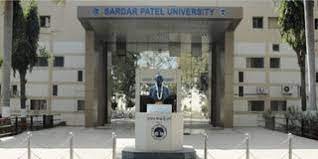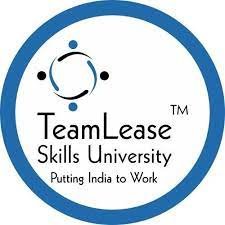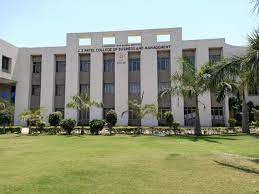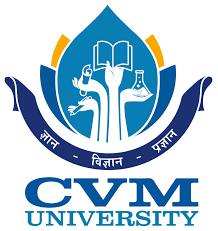A Master of Arts (MA) in Economics is a versatile and prestigious degree that can open doors to a wide range of career opportunities and provide numerous benefits. In this discussion, we will explore the future scope and benefits of pursuing an MA in Economics.
Future Scope: Master of Arts in Economics
MA in Economics offers a promising future scope with diverse career opportunities in various sectors. The benefits of pursuing this degree extend beyond financial rewards to encompass intellectual growth, analytical skills, and the opportunity to make a meaningful impact on society. Whether one's interests lie in policy analysis, financial markets, research, or academia, an MA in Economics provides a solid foundation for a fulfilling and influential career.
Diverse Career Paths: An MA in Economics equips graduates with a solid foundation in economic theory, quantitative analysis, and critical thinking. This broad skill set allows them to pursue diverse career paths in various sectors, including finance, government, academia, consulting, and international organizations.
Economist Positions: Graduates with an MA in Economics often work as economists, conducting research, analyzing data, and providing economic insights to organizations. They can find employment in government agencies, central banks, research institutions, and private sector companies.
Policy Analysis: Economists play a crucial role in shaping public policy. They analyze the economic impact of policies and provide recommendations to governments and organizations. This role can be particularly influential in areas like healthcare, education, and environmental policy.
Financial Analysts: Many MA in Economics graduates pursue careers as financial analysts. They assess economic data and market trends to provide investment advice, manage portfolios, and work in financial institutions such as banks, investment firms, and asset management companies.
Consulting: Management consulting firms value economists for their analytical skills and ability to solve complex business problems. Economists in consulting roles often work on projects related to market research, pricing strategies, and cost-benefit analysis.
Teaching and Academia: Some graduates choose to pursue a career in academia. They can become professors or researchers at universities and colleges, contributing to the field of economics through teaching and scholarly publications.
International Organizations: Organizations like the United Nations, World Bank, and International Monetary Fund hire economists to work on global economic issues, poverty reduction, and sustainable development projects.
Data Analysis and Research: Economists are in demand in industries that require data analysis and research, including market research firms, data analytics companies, and think tanks.
Entrepreneurship: An MA in Economics provides valuable skills for entrepreneurs. Graduates can use their economic knowledge to assess market conditions, identify opportunities, and make informed business decisions.
Public Sector Careers: Economists are sought after in government roles at various levels (local, state, and national). They contribute to economic planning, fiscal policy, and public finance management.
Ph.D. and Research Opportunities: For those interested in pursuing advanced research in economics, an MA can serve as a stepping stone to a Ph.D. program. Doctoral studies can lead to a career in academia or specialized research roles.
Benefits: M.A. in Economics
The benefits of pursuing this degree extend beyond financial rewards to encompass intellectual growth, analytical skills, and the opportunity to make a meaningful impact on society. Whether one's interests lie in policy analysis, financial markets, research, or academia, an MA in Economics provides a solid foundation for a fulfilling and influential career.
Intellectual Growth: Pursuing an MA in Economics involves rigorous academic study and research, promoting intellectual growth and critical thinking. Graduates develop the ability to analyze complex problems and propose solutions.
Analytical Skills: The program emphasizes quantitative and analytical skills, which are highly valued in today's data-driven world. Graduates can apply these skills to a wide range of professions.
High Earning Potential: Economics professionals often enjoy competitive salaries. Economists, financial analysts, and consultants, in particular, can earn substantial incomes.
Global Perspective: Economics is a global discipline, and an MA in Economics provides insights into how economic principles apply across borders. This global perspective is valuable in an increasingly interconnected world.
Policy Influence: Economists have the opportunity to influence public policy and contribute to the betterment of society by providing evidence-based recommendations to governments and organizations.
Adaptability: The skills gained during an MA in Economics are transferable to various industries and sectors, making graduates adaptable to changing job markets.
Research Opportunities: Graduates interested in research can pursue their passion through academic or industry research positions, contributing to advancements in economics.
Networking: During their studies, students often have opportunities to network with professors, fellow students, and professionals through conferences, seminars, and internships. These connections can be valuable for future career opportunities.
Problem-Solving Skills: Economists are trained to identify problems, gather data, and develop solutions. These problem-solving skills are valuable in many professions and daily life.
Contribution to Society: Many economists find fulfillment in careers that involve addressing pressing societal issues, such as poverty, inequality, and environmental sustainability.
Job Security: Economists are in demand in both the public and private sectors. Their expertise in analyzing economic trends and data makes them valuable assets to organizations.
Continuous Learning: Economics is a dynamic field, and professionals often need to stay updated on economic developments and theories. This lifelong learning aspect can be intellectually stimulating.
 2 Years
2 Years
 Post Graduate
Post Graduate
 Arts
Arts














 back
back

